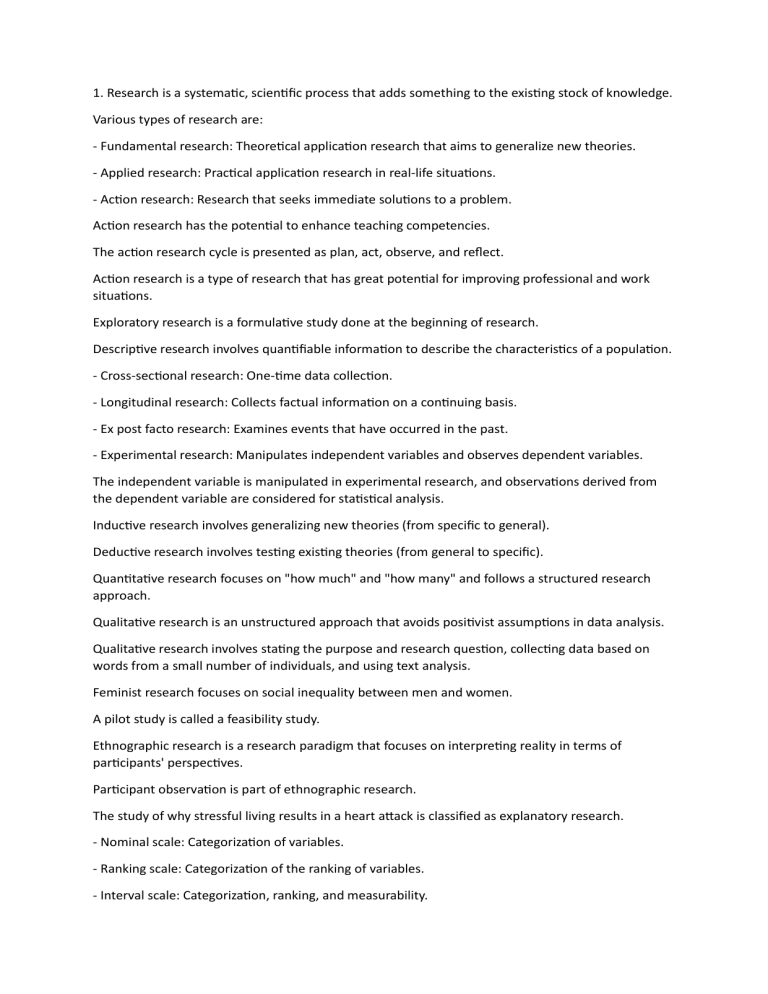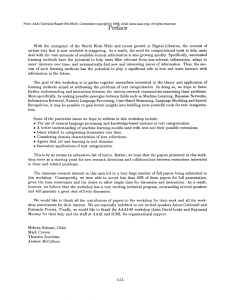
1. Research is a systematic, scientific process that adds something to the existing stock of knowledge. Various types of research are: - Fundamental research: Theoretical application research that aims to generalize new theories. - Applied research: Practical application research in real-life situations. - Action research: Research that seeks immediate solutions to a problem. Action research has the potential to enhance teaching competencies. The action research cycle is presented as plan, act, observe, and reflect. Action research is a type of research that has great potential for improving professional and work situations. Exploratory research is a formulative study done at the beginning of research. Descriptive research involves quantifiable information to describe the characteristics of a population. - Cross-sectional research: One-time data collection. - Longitudinal research: Collects factual information on a continuing basis. - Ex post facto research: Examines events that have occurred in the past. - Experimental research: Manipulates independent variables and observes dependent variables. The independent variable is manipulated in experimental research, and observations derived from the dependent variable are considered for statistical analysis. Inductive research involves generalizing new theories (from specific to general). Deductive research involves testing existing theories (from general to specific). Quantitative research focuses on "how much" and "how many" and follows a structured research approach. Qualitative research is an unstructured approach that avoids positivist assumptions in data analysis. Qualitative research involves stating the purpose and research question, collecting data based on words from a small number of individuals, and using text analysis. Feminist research focuses on social inequality between men and women. A pilot study is called a feasibility study. Ethnographic research is a research paradigm that focuses on interpreting reality in terms of participants' perspectives. Participant observation is part of ethnographic research. The study of why stressful living results in a heart attack is classified as explanatory research. - Nominal scale: Categorization of variables. - Ranking scale: Categorization of the ranking of variables. - Interval scale: Categorization, ranking, and measurability. - Ratio scale: Categorization, ranking, measurability in equal intervals, and expressed in absolute zero.



